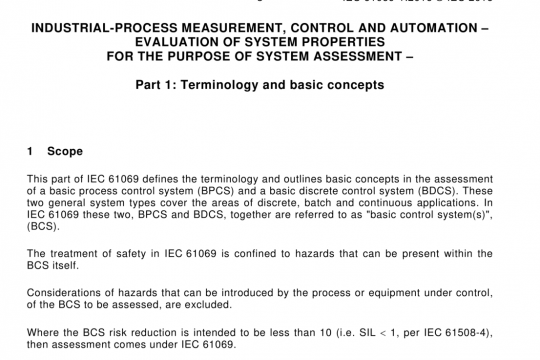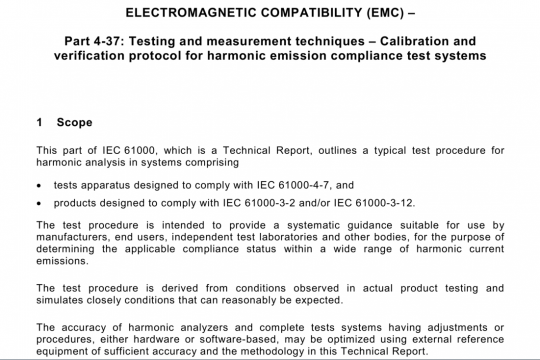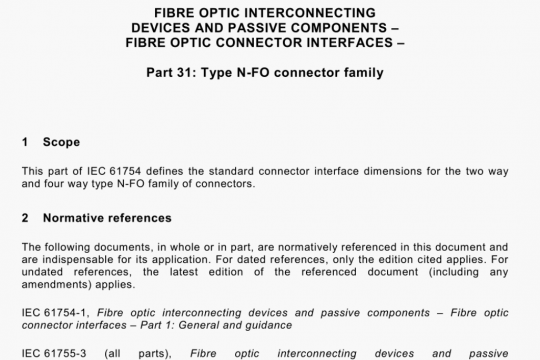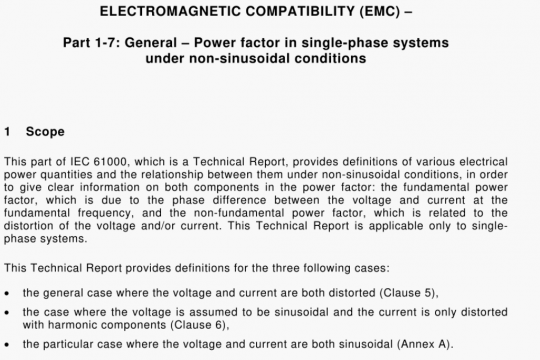IEC 61255 pdf free download
IEC 61255 pdf free download.Household electric heating pads – Methods for measuring performance.
The test is carried out with the control adjusted to the maximum setting and the temperature rises are measured when steady conditions are established or at the end of a cycle of operation.
The average temperature rise is calculated from all the measurements. The difference between the maximum and minimum temperature rises is also calculated.
NOTE If there is more than one heated area, the calculations are made for each heated area separately.
The uniformity factor is calculated, being the percentage of the heated area which is within
± 2 K of the average temperature rise.
The evenness of temperature is expressed as the difference between the maximum and minimum temperature rises, rounded to the nearest 1 K, and the uniformity factor, rounded to the nearest 1 %.
9 Heating-up time and energy consumption
The time taken for the temperature rise of a representative measuring point to rise by 20 K during the test of Clause 8 is stated in minutes (mm), rounded to the nearest 1 mm, as the heating-up time.
The ambient temperature is maintained at 20°C ± 2°C and the heating pad is conditioned for at least 24 h at this temperature before starting the test.
The temperature rise is measured by means of a thermocouple attached to the centre of a copper plate having dimensions of 65 mm x 65 mm x 0,5 mm, which is placed in the centre of the heated area.
The control is adjusted to the maximum setting and the heating pad is operated. The time taken for the temperature of the measuring point to obtain a temperature rise of 20 K is measured. The energy consumption during the heating-up time is determined as well as the energy consumption during a period of operation.
The operation is continued and the energy consumption is measured. The test is terminated for heating pads having a time-based operation when it switches off. The energy consumed for heating pads for continuous use is measured after 90 mm of operation and between the second and third hour of operation.
The heating-up time is stated, rounded to the nearest minute. The energy consumption during the heating-up time is stated in Wh, rounded to one decimal place.
The total energy consumed over one cycle of operation by heating pads having a time-based operation is stated. The energy consumption of heating pads for continuous operation during the first 90 mm of operation is stated. It is stated in Wh rounded to one decimal place.
The energy consumption between the second and third hours of operation of heating pads for continuous operation is stated in Wh/h rounded to one decimal place.
The power input when the appliance is in the standby mode is measured in accordance with Clause 5 of lEG 62301:2011.
The energy consumption during the heating-up time and for the complete cycle of operation is stated in Wh, rounded to the nearest Wh.
The standby power input is stated, if applicable, in accordance with Clause 6 of
IEC 62301:2011.
10 Cyclic variation
The maximum difference in temperature during one cycle of the measuring point closest to the centre of the heating pad, as specified in Clause 8, is stated in Kelvin (K), rounded to the nearest 1 K. This is specified as the cyclic variation.IEC 61255 pdf download.




